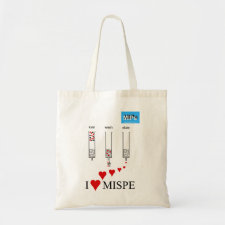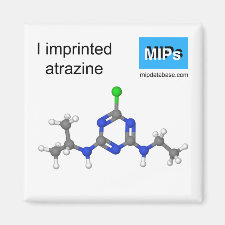
Authors: Carabias-Martínez R, Rodríguez-Gonzalo E, Herrero-Hernández E
Article Title: Behaviour of triazine herbicides and their hydroxylated and dealkylated metabolites on a propazine-imprinted polymer: Comparative study in organic and aqueous media.
Publication date: 2006
Journal: Analytica Chimica Acta
Volume: 559
Issue: (2)
Page numbers: 186-194.
DOI: 10.1016/j.aca.2005.11.081
Alternative URL: http://www.sciencedirect.com/science/article/B6TF4-4J2CNDH-6/2/ebcd07be147e4185d6066c61b39533dc
Abstract: A molecularly imprinted polymer (MIP) obtained by precipitation polymerization with methacrylic acid as functional monomer and propazine as template was tested as a sorbent for the solid phase extraction of chloro- and methylthio-triazines and some of their dealkylated and hydroxylated metabolites. In order to confirm the interaction between the functional monomer and the template, 1H NMR (CD2Cl2) analyses were made. It was observed that the hydrogen and/or nitrogen of the amino group of the propazine were involved in the formation of hydrogen bonds with the functional monomer.The possibilities offered by the propazine-MIP for the extraction of triazine and derivatives were studied in organic and aqueous media and different types of behaviour were observed. From organic medium, selective extractions of chloro- and methylthio-triazines were obtained after optimization of the extraction process, with recoveries higher than 75% in both cases. However, the hydroxylated metabolites were not retained on the propazine-MIP in organic medium.In aqueous medium, the chloro-triazines and the dealkylated chloro-metabolites were retained on the propazine-MIP by specific interactions, the recoveries obtained being a function of their polarity. Regarding the hydroxylated metabolites, these are retained on the propazine-MIP through non-specific hydrogen-bridge interactions. The methylthio-triazines undergo poor molecular recognition in this medium
Template and target information: propazine, DIA, DEA, Simazine, Atrazine, Terbutylazine, Prometryn, Terbutryn, Deisopropylatrazine, Deethylatrazine
Author keywords: Molecularly imprinted polymers, precipitation polymerization, triazine herbicides, Dealkylated and hydroxylated metabolites



Join the Society for Molecular Imprinting

New items RSS feed
Sign-up for e-mail updates:
Choose between receiving an occasional newsletter or more frequent e-mail alerts.
Click here to go to the sign-up page.
Is your name elemental or peptidic? Enter your name and find out by clicking either of the buttons below!
Other products you may like:
 MIPdatabase
MIPdatabase









